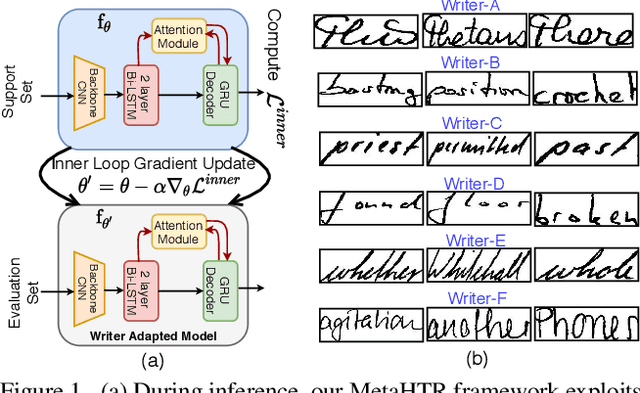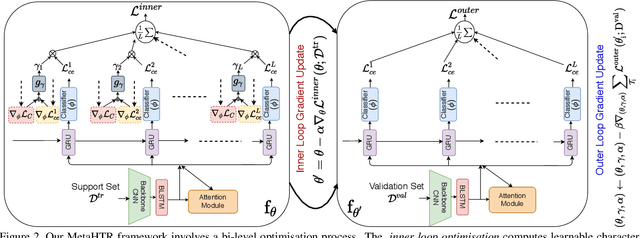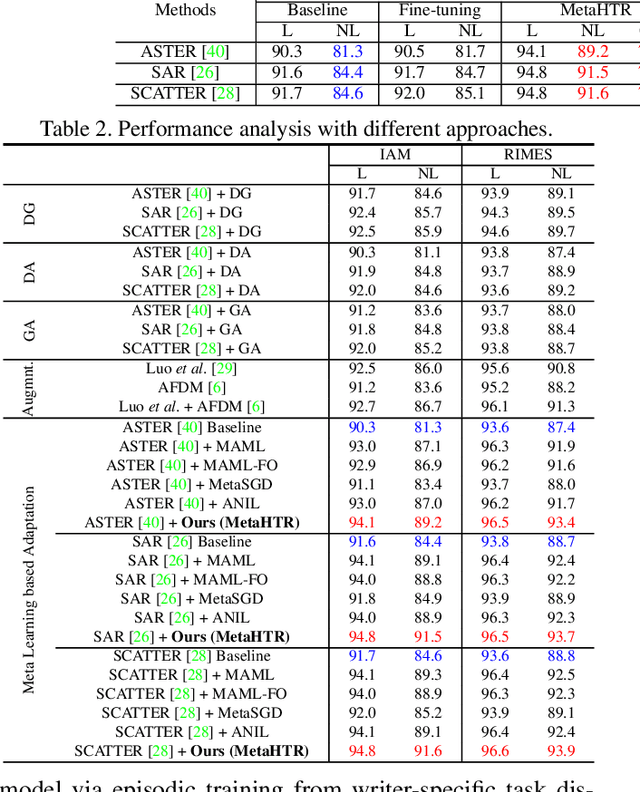MetaHTR: Towards Writer-Adaptive Handwritten Text Recognition
Paper and Code
Apr 05, 2021



Handwritten Text Recognition (HTR) remains a challenging problem to date, largely due to the varying writing styles that exist amongst us. Prior works however generally operate with the assumption that there is a limited number of styles, most of which have already been captured by existing datasets. In this paper, we take a completely different perspective -- we work on the assumption that there is always a new style that is drastically different, and that we will only have very limited data during testing to perform adaptation. This results in a commercially viable solution -- the model has the best shot at adaptation being exposed to the new style, and the few samples nature makes it practical to implement. We achieve this via a novel meta-learning framework which exploits additional new-writer data through a support set, and outputs a writer-adapted model via single gradient step update, all during inference. We discover and leverage on the important insight that there exists few key characters per writer that exhibit relatively larger style discrepancies. For that, we additionally propose to meta-learn instance specific weights for a character-wise cross-entropy loss, which is specifically designed to work with the sequential nature of text data. Our writer-adaptive MetaHTR framework can be easily implemented on the top of most state-of-the-art HTR models. Experiments show an average performance gain of 5-7% can be obtained by observing very few new style data. We further demonstrate via a set of ablative studies the advantage of our meta design when compared with alternative adaption mechanisms.
 Add to Chrome
Add to Chrome Add to Firefox
Add to Firefox Add to Edge
Add to Edge